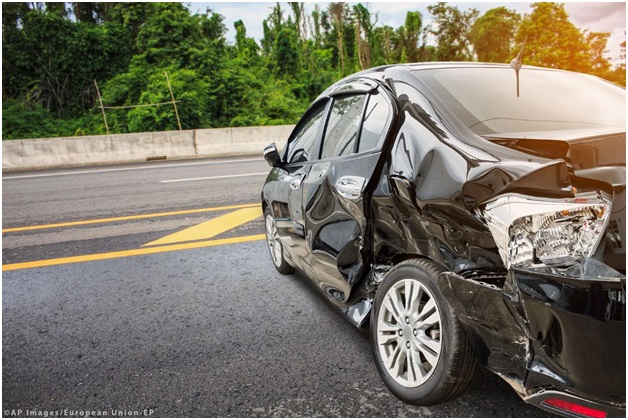Your employee crashed the car, and now you worry that the courts will hold you responsible for his mistake. Can employers be held liable when employees cause an accident? The short answer is yes. In most situations where an employee causes an accident while driving for work, an employer can be held responsible for any damages.

Vicarious Liability: What Does It Mean?
Under the vicarious liability law, the liability of an employee gets placed on the employer. Negligent acts on the part of the employee could leave you vulnerable to a lawsuit if he worked off-premises. The victim could file a lawsuit against you for damages. In many cases, they target the company because they can get more money from a business than they could an employee.
Exceptions
Like with most laws, there are exceptions to when an employer is responsible. Based on the “Going and Coming” Rule, employers usually can’t be held at fault for an accident that their employee caused while driving to or from work.
However, even if the accident was outside of work hours, an employer may be responsible if the employee was heading to a special event beyond their normal scope of duties, such as a conference, office party, or company picnic. Under the following circumstances, an employer could face liability:
- Paid for commute time
- A personal vehicle used for work purposes
- Travel as part of work duties with personal vehicle
The Employer’s Car Insurance
As an employer, you can protect yourself from harm by adding car insurance that will give you full coverage. This extra insurance will add to the employee’s car insurance. After a car accident, the employee’s car insurance will usually take over.
However, problems can occur when the employee didn’t have full coverage. They may have totaled a $250,000 car. Their insurance doesn’t cover it. Businesses that have coverage ensure that their protection will kick in if the victim tries to sue.
What About Within the Workplace
We spoke about off-premises accidents. What about when the accident happens on the site? Although they seem harmless, slip and fall injuries can have serious potential consequences. Repercussions from these injuries can be life-changing. Unfortunately, you don’t have a way around this. Your best bet is to take as many precautions to mitigate the risk. Keep the signs out to warn customers about wet floors and document everything if an accident occurs.
How to Respond to a Workplace Accident
How you respond to an accident in the workplace can lower the risk of damages. You should train your employees to follow company policy. Accidents can happen without warning, and you must respond quickly. First, take control of the scene and restore order. Next, administer medical assistance to anyone in need. You want to pinpoint individuals who saw what happened and ask for witness testimony. They might assist later.
After an accident, you might set up a protocol so that the supervisor details an accident report of what happened. You want to have fresh details established early because people’s memories fade shortly after the accident.
Unfortunately, employers may have had nothing to do with the accident. However, the employee who caused the accident could still make the employer responsible. Many times, lawsuits target the business because they will have more cash than the employee. Every accident should be reported because you don’t want a surprise later about a customer who decided to sue.
The biggest thing that can reduce liability is to stay on top of accidents and do your best to look out for the welfare of your customers and employees. Mitigate the risks, and people will have less legal grounds for filing a lawsuit.











